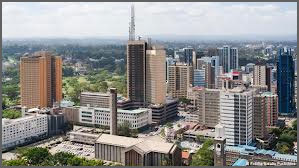 The opportunity in Kenya and Africa is greater than anywhere else in the world today. I believe that over the coming decade, many African countries, Kenya included, have the potential to outpace the growth witnessed in Asia in the past decade.
The opportunity in Kenya and Africa is greater than anywhere else in the world today. I believe that over the coming decade, many African countries, Kenya included, have the potential to outpace the growth witnessed in Asia in the past decade.
To illuminate this point, we could draw parallels between Africa and Asia. In the 1960s, Asia was widely considered an over-populated, politically backward, war-ravaged basket case. It is hard to imagine, for instance, that in 1970, China’s per-capita GDP was less than that of most African countries.
Africa is now rapidly regaining ground lost over the decades. This new momentum, charted in detail in The Fastest Billion, Renaissance Capital’s new book on Africa, will completely transform the continent, as has happened in Asia.
Indeed, Kenya’s time has arrived; the country is undergoing the same kind of transition seen in many countries in Asia over the past 30 years.
Kenya, like other promising African economies, is in a virtuous cycle of development – a cycle characterised by the emergence and growth of a thriving, increasingly affluent middle-upper class that is more assertive and thus pushes for better policies. This gradually gives impetus to improved governance.
Kenya has a clear opportunity to evolve into a middle-class economy in the next 25 years. In addition to capitalising on the broader economic revolution in Africa, the country benefits from strong agriculture and tourism sectors. It also enjoys the strategic advantages associated with its position as a natural hub in what is one of the world’s most dynamic regions.
Kenya’s path towards democracy under a new constitutional dispensation will give it a strong institutional framework to achieve political, social and economic progress under the Vision 2030 initiative.
However, the range of potential economic and social outcomes is still very wide for Kenya, and this will depend fundamentally on the stability and quality of governance. This will determine whether the country realises its potential to become a middle-income country.
That Kenya fell three places to 109 in the World Bank’s latest Ease of Doing Business Index while Rwanda rose five places to 45 tells you how much potential there is – but also how great the challenges are.
The key changes for Kenya include enhanced reform of the Judiciary and the creation of a regulatory framework that encourages, rather than stifles, business.
According to World Bank indicators, most African countries have implemented successful microeconomic reforms. Those implementing the biggest reforms and broadest trade liberalisation measures have experienced the greatest acceleration in economic growth.
Kenya has halved the number of days required to start a business from 60 in 2004 to 33 in 2012. The cost of starting a business has fallen from 52 per cent of per-capita income to 38 per cent.
The time taken to export goods has been slashed from 45 days in 2006 to 26. The time spent dealing with construction permits has fallen from 163 days in 2007 to 125. This is good progress.
Sustaining the momentum will be an essential for strengthening Kenya’s status as the regional economic hub.
Mr Jennings is co-founder and CEO of Renaissance Group, the lead investor in Tatu City. This is an abridged version of a speech he made at the recent Kenya Investment Summit in London.
Source : nation.co.ke